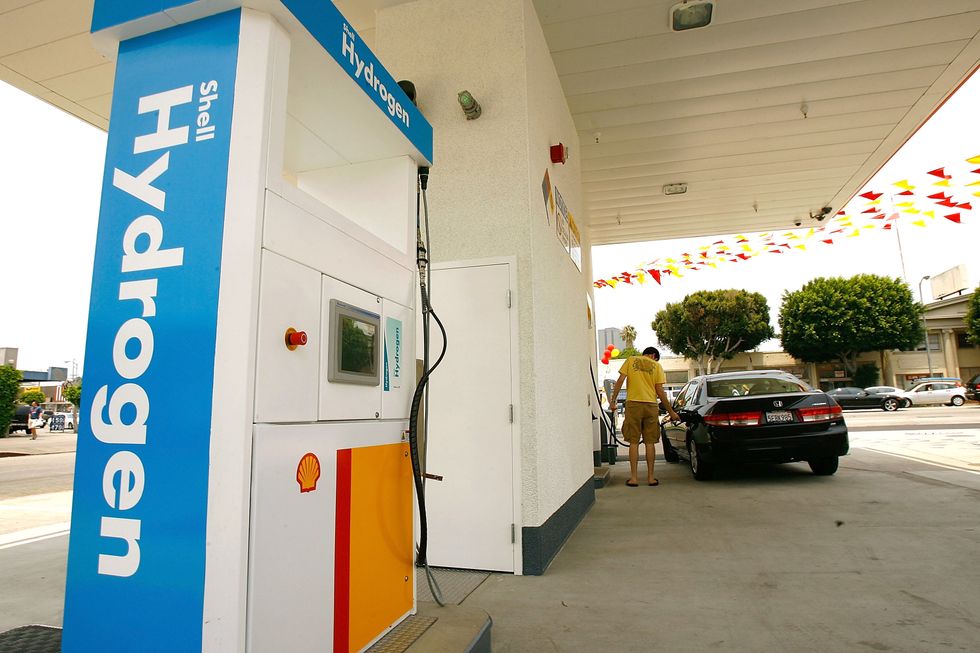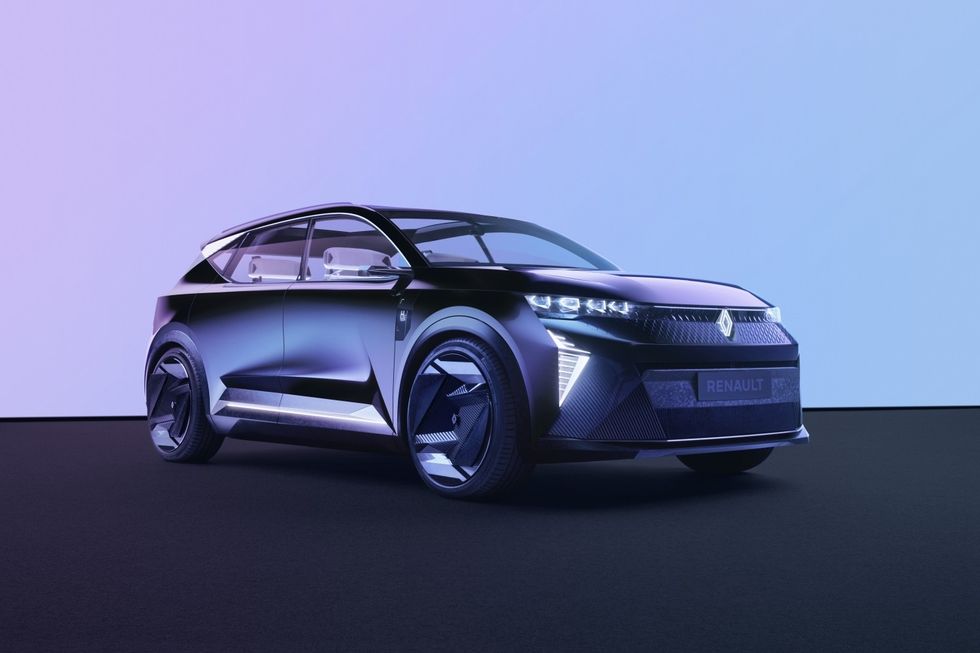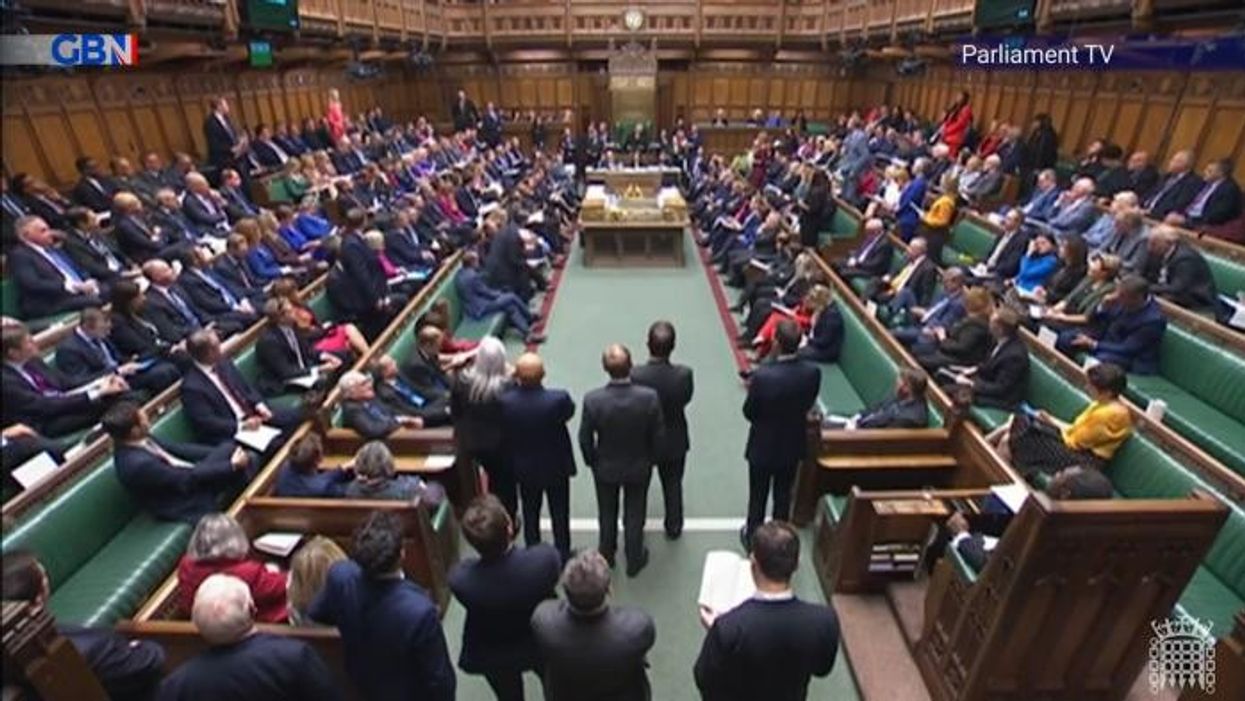Hydrogen vehicles backed by major car brand with calls to develop a 'master plan' for wider rollout
Hydrogen vehicles have been praised for their long range and quick refuelling times
Don't Miss
Most Read
Trending on GB News
Hydrogen could become a more common fuel source for vehicles in the coming years if measures were introduced to rollout suitable measures to support uptake, according to the boss of Renault.
Luca de Meo, CEO of Renault Group, called on governments and manufacturers to “allow free access only to small electric or hydrogen-powered cars and vans” to enter cities as a way to limit pollution.
As one of 10 projects for the European car industry to catch up with China and other global manufacturing superpowers, de Meo supported a boost to the potential use of hydrogen.
He called for the adoption of technological neutrality for hydrogen, allowing the fuel cells to be used in small-scale mobility projects.
Do you have a story you'd like to share? Get in touch by emailingmotoring@gbnews.uk

The boss of Renault called for new measures to get hydrogen vehicles closer to consumers
GETTY
The 56-year-old added: “Develop a master plan identifying the most promising areas and coordinating actions across Europe.
“Focus efforts on the most relevant areas: match up hydrogen pipelines and fuelling stations (HFS), coordinate the emergence of hydrogen hubs to be set up near green energy sources.
“Set up hydrogen distribution networks. Move closer to potential buyers.”
The Renault boss highlighted how hydrogen fuel cell powertrains can deliver longer range and can be refuelled in a matter of minutes.
They are well suited to HGVs, buses and lorries as they can easily cover long distances without constant recharging and are still environmentally friendly.
For an equivalent level of performance, the battery required for a hydrogen vehicle is smaller and lighter.
Luca de Meo pointed to Renault’s new electric Master which can achieve a real range of 500km. A dual battery-hydrogen fuel cell system (Hyvia type) would be half the weight (775kg) of a conventional battery (1,427kg).
The European Union recently provided €1billion (£854million) to the Alternative Fuels Infrastructure Facility (AFIF) to support the rollout of hydrogen refuelling stations.
It also previously announced plans to install hydrogen fuelling stations in all major cities as well as every 200km along core routes.
Experts have suggested that this could result in the installation of a hydrogen refuelling station in 424 major cities across the bloc, with hopes to have complete network coverage by the end of the decade, Hydrogen Insight reported.
Andreas Carlson, the Swedish minister for infrastructure, said: “The agreement will send a clear signal to citizens and other stakeholders that user-friendly recharging infrastructure and refuelling stations for alternative fuels, such as hydrogen, will be installed throughout the EU.
“This means that more public recharging capacity will be available on the streets in urban areas as well along the motorways.
LATEST DEVELOPMENTS:
- UK could impose 'robust measures' on cheap electric vehicles as China looks to flood car market
- Drivers warned of insurance issue that may bring 'costly fines, vehicle confiscation and licence suspension'
- Renault slams larger electric vehicles as 'environmental nonsense' and calls for smaller petrol cars

The Renault Scenic Vision hydrogen concept car
RENAULT
“Citizens will no longer have a reason to feel anxious about finding charging and refuelling stations to their electric or fuel cell car.”
Renault created a hydrogen-powered concept vehicle, named the Scenic Vision, which the brand called "an aspiration" rather than a concept car.









